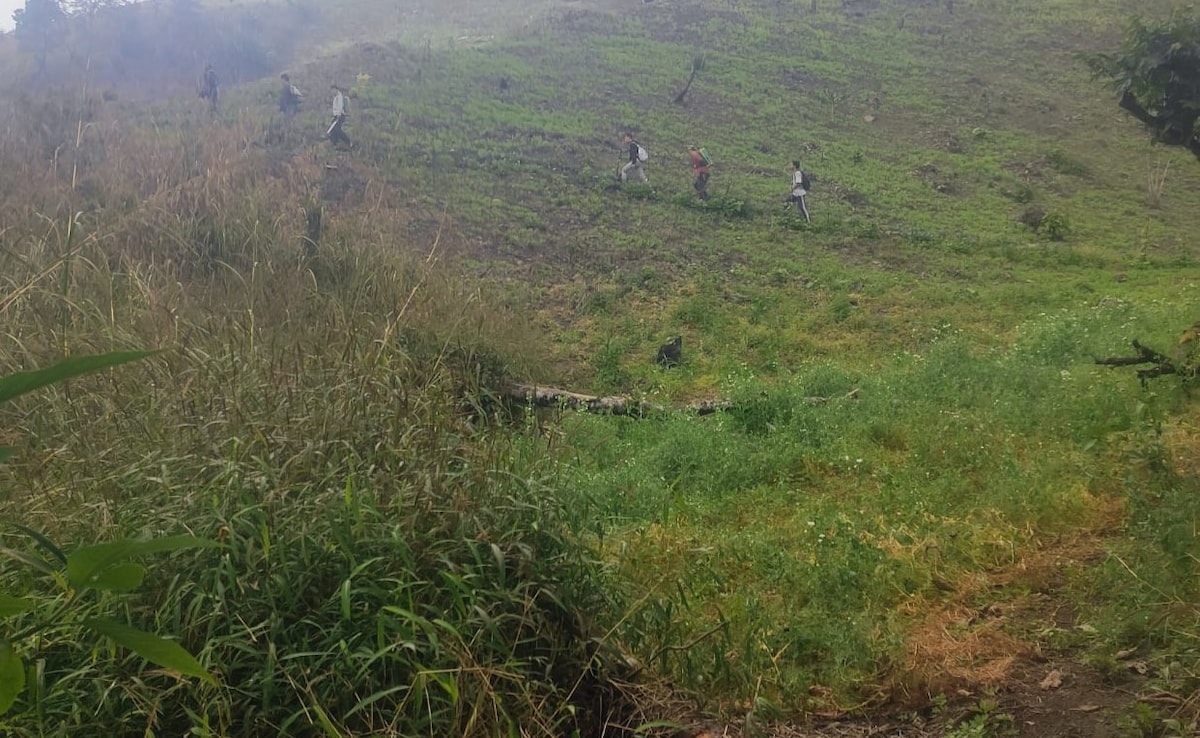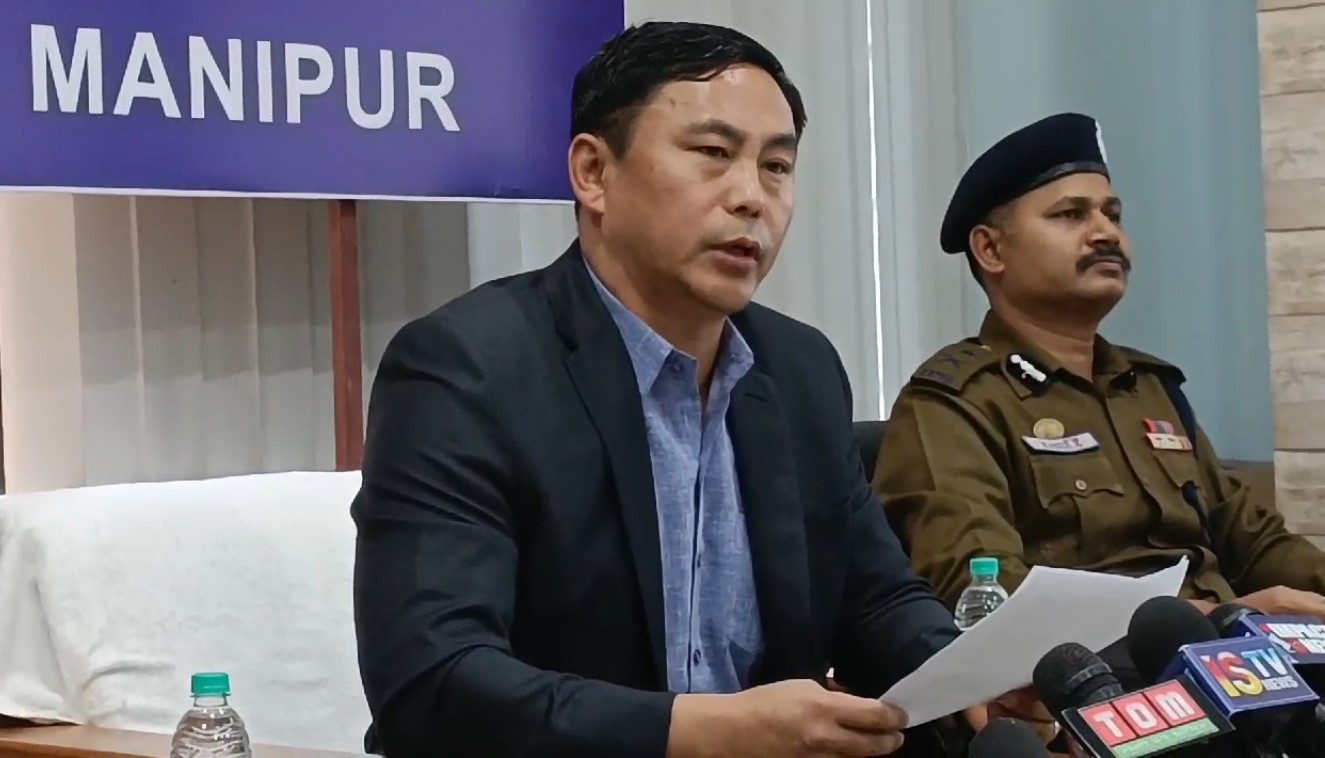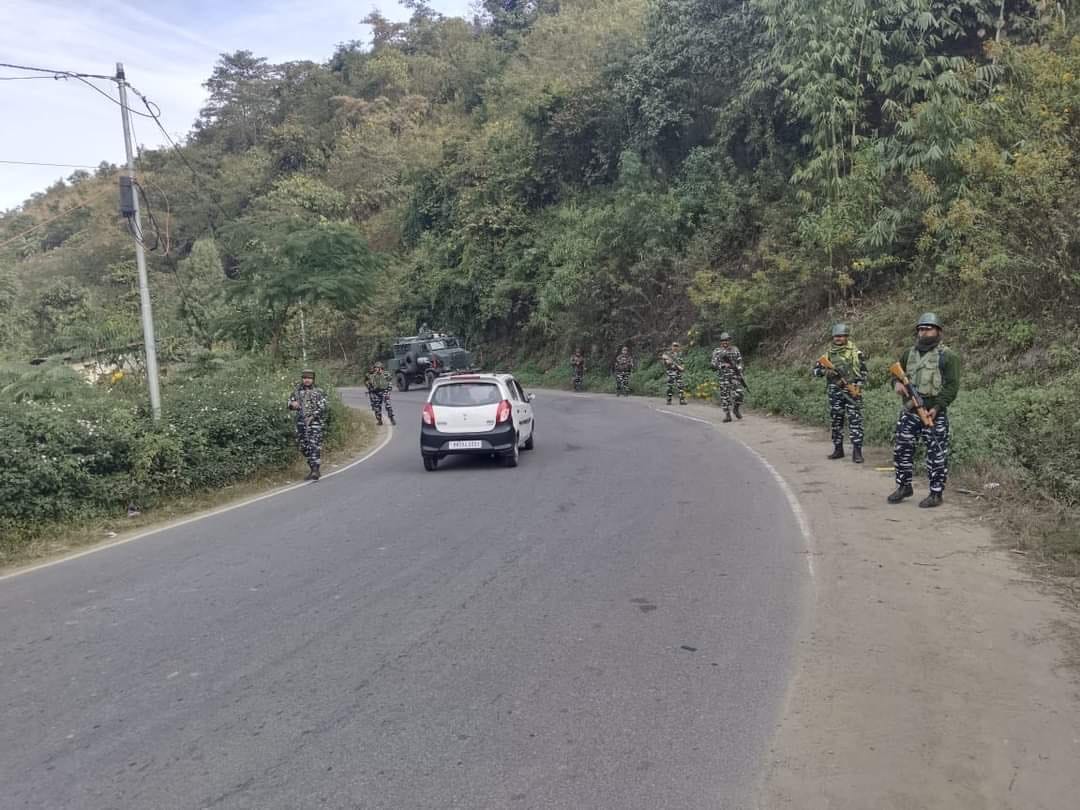Manipur Police’s Bold Action Faces Dangerous Resistance: Poppy Farm Raid Foiled After 3-Hours Trek!
Manipur Police’s poppy farm raid was halted by armed resistance, highlighting challenges in tackling illegal cultivation amidst political, social, and security issues.

The latest conflict episode involves the people of Churachandpur and the state government of Manipur, where the state is still simmering in social and political problems. When tension increased, a police team began a three-hour treacherous operation to burn poppy farms that had been grown illicitly in the hills of Kangpokpi district – the operation is one of the many that the state continues to conduct in the fight against illicit activities.
But their mission was cut short when they met 90 armed people, which prompted the withdrawal of the officers. This is an indication of the deteriorating state of law enforcement in the region that already boasts ethnic tensions, conflict and political instabilities, coupled with inadequate security environment that such attacks complicate any attempts at governance and justice.

The Roots of Poppy Cultivation in Manipur
Poppy cultivation in Manipur has increased in recent years due to its high profitability in a region that is economically depressed. Due to geographical isolation and hilly areas of the region, poppy farming is prevalent despite being prohibited. The cultivation has necessarily developed a black market associated with it, which allures farmers as the only profession in this area.
However, the short-term economic gains come with serious repercussions. It keeps a particular society legally and socially dependent on unlawful, illegal practices that do not support sustainable development goals. On the environmental aspect, one is the clearance of large areas of forest for the cultivation of poppies, whose impact results in deforestation as well as worsening of soil erosion and other imbalances.
Additionally, the use of poppies and narcotics has raised further concerns, particularly regarding their link to drug manufacturing. Substance abuse has today posed a significant problem in Manipur because while opium grown from poppy farms is used to manufacture heroin and other prohibited substances, Manipur has become an essential juncture in drug trafficking networks in the region.

These substances are then dispersed all over India and some neighbouring countries, decomposing the social fabric of these societies. This relationship between agriculture, narcotics, and organised crime poses a significant challenge for governments seeking to eliminate both substance use and the multi-factorial effects of poppy farming.
Manipur Police’s Crackdown on Poppy Cultivation Amid Challenges
The Manipur Police has scaled up on efforts to remove poppy plantations within Manipur as part of anti-drugs and anti-environment initiatives. A recent mission in the hill terrain of Kangpokpi district discovered the odds faced in a bid to address this emerging vice.
It involved 25 police personnel, volunteers from the Liangmai Naga tribe and five drivers who proceeded on a tiring operation on foot, including a three-hour trek on land to get to the poppy farms.

However, the team was confronted with armed resistance ranging between 80-90 people who sought to prise the few firearms available to them by force. The team was equipped with only three assault rifles during the proper physical activity of eliminating poppy fields with tools; the team had to move back in order to avoid the risk.
The trials of seizing such an area with features such as steep rocky terrains and poor support from reinforcements behind made it even more challenging, hence the need to enhance the resources to be provided for such risky operations.
The incident recorded in a First Information Report (FIR) has prompted Manipur’s security forces to consider launching a more extensive operation involving central forces. Some sources cite indications that these forces are likely to respond with force against armed threats, which indicates a likely upscaling of the crackdown on immoral farming.

Kangpokpi, a district that is sometimes found in unauthorised maps drawn up by Kuki tribes aspiring for an independent administration, was notorious for insurgency. The region, now with Kuki National Front (KNF) led by ST Thangboi Kipgen, is a part of more than twenty-five Kuki-Zo militants under the Suspension of Operations (SoO) agreement. Though labelled overly softened, this agreement was renewed in February of 2024, and the extension of this agreement is still being debated.
Organisations of civil society of the Meitei ethnic group accuse Kuki insurgent formations of being involved in the spread of illicit poppy growing. The local police began the action of burning down farms in the Makhan hill range in the order of the Kangpokpi police chief.
Lying within the police station of G Saparmeina it is about 35 km north of Imphal, the state capital. Such developments paint a clear picture of the security, socio-political situation in which Manipur’s fight against illicit poppy cultivation continues.
Confrontation with Armed Individuals: A Battle Beyond Law in Manipur
The Manipur Police faced a daunting task when they encountered 80-90 armed individuals while attempting to eliminate illegal poppy cultivation in Kangpokpi district. These armed thugs, many more than the police numbers, tried to disarm the limited number of weapons by the team, the team carrying only three riffles, two of them being assault riffles. With tension at a standstill, police had no other option but to pull out their forces and people who volunteered to be involved in the operation to avoid the loss of their lives.
It is still unclear which group the armed individuals belong to, but the authorities assume that they are local militants or drug traffickers. Kangpokpi district is one of the favoured districts of the Kuki National Front (KNF), a militant outfit under the Suspension of Operations (SoO) accord.
The civil society groups have also alleged some of the Kuki insurgent groups to promote the production of illicit drugs in view of the fact that opium cultivation has turned out to be a culture among these groups, and this complicates the socio-political and security landscape for the region.
The event shows the dangers of eliminating the culture of poppy cultivation in the region inhabited by criminal organisations and militants. Lack of personnel and equipment, and the topography of the terrain adds to the risks, underlining the significance of synergy to assemble a proper plan which will engage better-endowed central forces to neutralise these illegitimate chains.
Navigating the Security Challenges: Battling Crime in the Hills of Manipur
The operation aimed at stamping out illicit poppy cultivation in Manipur territory reveal case that law enforcing agencies encounter daunting difficult in the tactful terrains. Formed by 25 personnel with apparatus shortages, meagre three assault rifles, they faced the physical sufferings during the trekking with tools required to dismantle the poppy fields.

This resulted in a lack of arms and reinforcements, leaving them unable to defend against attacks from the 80-90 armed men, who are believed to be associated with local militias or drug cartels. The remote location still made it difficult to back up since the connection was slow, making the team have to pull back.
All these constraints clearly show the need for more and improved planning, intelligence, and resourcing to deal with the well-entrenched complex triad of organised crime, insurgency, and poppy cultivation in the region.
Impact of Organised Resistance in Manipur
The encounter that the police team of five persons witnessed during their operation to eliminate the crop required a brave war against drugs in Manipur. It also makes an organised fight more challenging and, hinders the direct work of eradicating opium poppy farms, and is a major demoralising factor to law enforcement officers.
Police failure to neutralise the threat of armed groups hurt the government’s anti-drug war in the region even more. Such continued resistance holds implications for governance and security in places such as Kangpokpi, where insurgent organisations, as well as drug cartels, seem to wield power.

For this reason, the Makhan village authority has been appealing to the government to have the so-called illegal cultivation cleared in a four day ultimatum as failure to take this action will make the situation ‘repulsive and abominable.
Chief Minister N Biren Singh has acknowledged that five district villages have illicit poppy cultivation. He has also said that it is difficult for security forces to handle multiple sensitive areas in view of ethnic problems in the state. With increasing pressure being applied to the authorities, it is yet to be seen if the government is capable of surmounting these obstacles and eliminating the networks behind the cultivation of poppy.
Environmental and Social Impact of Poppy Cultivation in Manipur
Illicit cultivation of poppy in Manipur has contributed to environmental pollution. The farms are normally established in hard-to-reach, steep slopes, which often forces the farmers to cut down trees to make way for Opium farms. This not only affects the natural environment but also leads to soil erosion since the vegetation is cut, uprooted, and stripped off.
The absence of trees and plants also increases flooding during the monsoon period, contributing to the destruction of the land and for future agricultural purposes the soil remains less suitable. Another disadvantage of monoculture in the farming of poppies is social impact because farming really affects the local flora and fauna by replacing them with these crops.

Cultivation of poppy comprehensively impacts the society especially to the societies where it is grown. Both opium and drug cultivation have a close relationship to addiction since many people in these areas develop an addiction due to the rising industry.
The result of this addiction problem often brings a cycle of exploitation as the vulnerable are manipulated or coerced into working in the poppy fields, sometimes under duress or threat from local armed groups or drug cartels.
These communities are further confronted with increased violence and insecurity, with the presence of armed insurgents or criminals linked to the drug trade posing a constant threat. The economic instability and social decay that ensue further deepen the plight of those living in such areas.
Government Response to Poppy Cultivation
The drive by the government to address the problem of the banned crop in Manipur remains hampered by challenges arising from political and security issues. Even though elements such as crop substitution programs and community mobilisation efforts form part of the strategy, they seem to lack the capacity to address the challenging issue of planting and distributing opium.

The situation remains tense because the Kuki National Front (KNF) and other militants operating in the Kangpokpi district are alleged to have been involved in poppy cultivation. The KNF under the SoO has played a notable role in the area in increasing the production of poppy farms and violence.
The civil society organisations, particularly of the Meitei community, complained that the latter groups [insurgents] are intimately and actively participating in the cultivation of opium in those Kuki-dominated regions. Even though police forces have been dispatched to eliminate such farms, for example, in the operation that took place in Makhan hill range Kangpokpi, the process has been slowed down by the armed resistance from local militants who have chased the police back. Insufficiency of these resources, plus insufficient backup forces, have worsened the government’s capability to break down these ventures consistently.
Besides security threats, there are other obstacles to the government’s response—ethnic conflict and political stimulus for a separate Kuki government. This is an indication that the modus operandi adopted by the government, through eradication of the crop and employment of local police, may not work well if they do not consider the high level of socio-political consciousness and the influence of militant groups.
)
Despite recent directives from the government regarding the clearance of unauthorised poppy farms and continued vigilance of the situation, a shortage of a well-coordinated comprehensive status for the eradication of the drug and the stabilisation of security leaves loopholes in the attainment of beneficial consequences.
Call for a Comprehensive Strategy in Manipur
Therefore, multiple strategies should be employed to eradicate poppy cultivation in Manipur, starting with law enforcement agencies, working with the communities, and implementing sustainable development projects. Police modernisation and better cooperation with central forces are equally important to counter the existing security threats and successfully achieve the noted operations.
Besides, obtaining community involvement is crucial in sensitising the populace about the negative effects of poppy growing on their society and surrounding environment and in transitioning the affected populace from poppy growing. In combination with law enforcement, single, viable agricultural development, crop substitution, and conservation shall work towards extortion of the incentive values.
Extortion remains a persistent challenge, and a solution will require the cooperation of local communities, police forces, government departments, and civil society to forge a new, safer, healthier, and prosperous Manipur.




